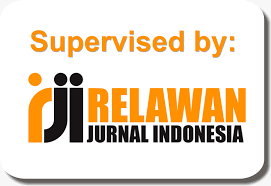Students’ Writing Anxiety and Its Correlation to Their Writing Achievement
DOI:
https://doi.org/10.52333/djoee.v5i2.738Keywords:
anxiety, writing, achievementAbstract
Writing plays an important role in learning and understanding English. Students consider writing difficult due to writing anxiety and lack of confidence. This study aimed to investigate the correlation between students' writing anxiety and their writing achievement. The sample consisted of thirty-three students from one of the senior high schools in Prabumulih, South Sumatra. A correlational study was used to design the study. A questionnaire and reading comprehension test were the instruments to collect the data. Based on the findings, the majority of the students, specifically 61%, exhibited symptoms of physical anxiety. Additionally, a smaller proportion of students, namely 9%, displayed signs of avoidance anxiety, while cognitive anxiety was reported by 30% of the participants. Researchers found that 5 students (15%) on the critical exposition test were considered average, 3 students (9%) were considered fair, 6 students (18%) were considered poor, and 19 students (58%) were considered inadequate. The study found a significant correlation (sig.2-tailed) of 0.30 between students' writing anxiety and their writing achievement. With coefficients of 0.104, cognitive anxiety emerged as the most common form of writing anxiety among students. This finding indicated that cognitive anxiety was responsible for the greatest contribution to students' writing achievement.
References
Andrade, H., (2005). Teaching with rubrics: The good, the bad, and the ugly. College Teaching, 53(1), 27-31.
Brown, H. D.,(2007). Principles of language learning and teaching (5th ed.) Longman.
Cheng, Y.,S., (2004). A measure of second language writing anxiety: Scale development and preliminary validation. Journal of Second Language Writing, 13(4), 313-355. doi:10.1016/j.jslw.2004.07.00.
Fitrinada, D., M., Loeneto, B.A., &Fitrinova, F., (2018). Students' writing anxiety and its correlation with writing performance. The Journal of English Literacy Education,5(2), 194-207.
Hartono, H., (2012). The correlation between students’ level of anxiety and students’ writing achievement at writing class. LITE Journal, 8(2).106-116.
Hassan, B., A., (2010). The relationship of writing apprehension and self-esteem to the writing quality and quantity of EFL university students. Mansoura Faculty of Education Journal.37.
Horwitz, E. K., Horwitz, M. B., & Cope, J. (1986). Foreign language classroom anxiety. The Modern Language Journal, 70(2), 125-132. https://doi.org/10.1111/j.1540-4781.1986.tb0526.x
Kafryawan, W., Mursyid, A. M. M., Sahib, R., &Purwati, H., (2021).The correlation between EFL students’ anxiety and their English writing skills. Teaching of English Language and Literature Journal, 9(1), 1-10.
Khoii, R. (2011). A Solution to the dilemma of writing in a foreign language: adaptive mentorship. http://www.infonomicssociety.org/IJCDSE/WritingEFLjournal.pdf.
Klimczak, P. A. (2014). English as a means of communication by non-native speakers, 17, 65-83. https:/www.springer.com.
Larson, J. E. (2009). Educational psychology: cognition and learning, individual differences and motivation. Incorporated.
Lestari, D. E., Loeneto, B., &Ihsan, D. (2019). The correlation among English learning anxiety, speaking and writing achievements of Senior High School students.Indonesian Journal of EFL and Linguistics, 4(2), 135-150. https://doi.org/10.21462/ijefl.v4i2.137
Rasuan, B. Z., Wati, L., (2021). Students’ writing anxiety and its correlation with their writing performance. English education journal, 1(1), 21-29.
Wahyuni, S., &Umam, C., (2022). An analysis on writing anxiety of Indonesian EFL college learners. JEELS (Journal of English Education and Linguistics Studies), 4(1), 105–128. https://doi.org/10.30762/jeels.v4i1.51
Downloads
Published
How to Cite
Issue
Section
License
Copyright (c) 2024 Rizki Annisa, Ridha Ilma, Renny Kurniasari

This work is licensed under a Creative Commons Attribution-NonCommercial-ShareAlike 4.0 International License.







